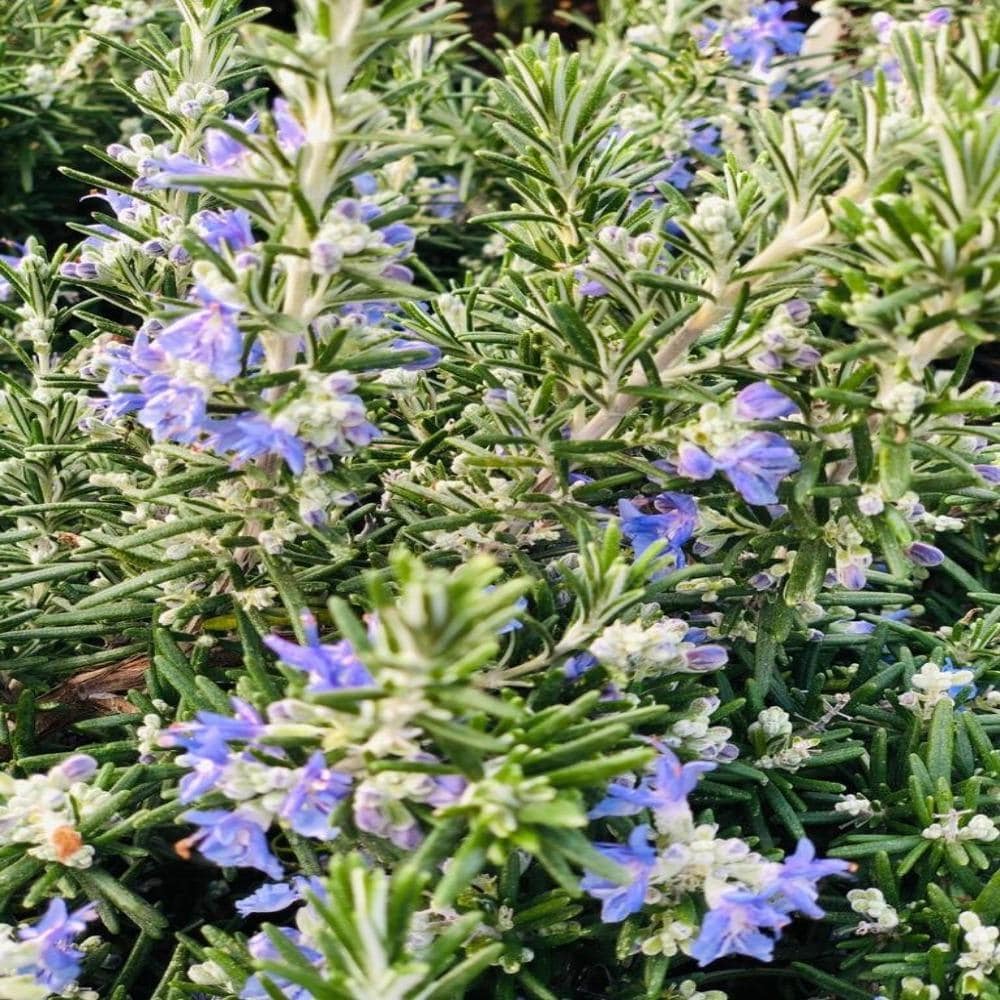If you are short on space for growing herbs, then this is the one for you! Rosemary has been around for centuries and has been used both for medicinal and culinary uses. In recent years, following extensive research, the official Latin name has been changed from Rosmarinus to Salvia Rosmarinus. Why the change I hear you ask? The RHS Nomenclature and Taxonomy Advisory Group are the ones who brought around the change and this in on the back of extensive DNA testing which shows that culinary sage and rosemary are from the same family and thus the reclassification – and this applies to any of the Rosmarinus officinalis family. There is no change to the common name and when it comes to herbs, we do tend to stick to the common name rather than the Latin name to avoid confusion. We feel that when it comes to plants that you will eat, there should be no confusion whatsoever.
Rosemary is classed as an evergreen shrub and can be planted in mixed borders as well as herb beds and pots and containers. All rosemary plants have foliage that is green (some darker than others), and the foliage resembles small fine needles. The flowers which appear in early spring and sometimes again in autumn are blue, pink, or white, with blue being the most common. Rosemary can reach heights of 40cm up to 1.5m depending on the variety. They can also make a lovely edible hedge for which the best variety is ‘Miss Jessop’s Upright’, which will easily reach 1.2m.
Culinary rosemary can be used with so many dishes. It is a great accompaniment to vegetables that are cooked in the oven such as roast potatoes or tomatoes. It also goes very well with lamb and chicken, is a great partner for oily fish and is amazing in soups, stews, and casseroles.
Medicinally, rosemary is used for many conditions, but the most common ailments are for memory and circulatory conditions. Recently, a hair tonic made with infused rosemary became very popular on social media, as it is easy to make at home and will 100% boost your hair health. If you are using rosemary for medicinal purposes, always go for Salvia Rosmarinus or common rosemary, as they have the most healing powers.

